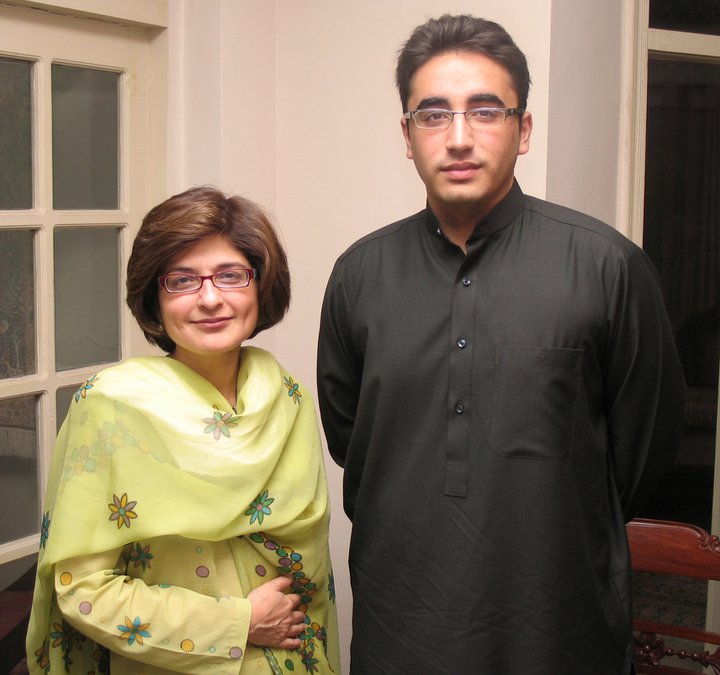“Both capacity and will” by Farahnaz Ispahani
In an article in this newspaper titled “Can Bilwal revive the old PPP” (December 1), a respected reporter and anchor from a family that is known for its journalistic ethics — in an age and time in Pakistan when that has become a rarity — posits an interesting question.
Mazhar Abbas asked whether the Chairman of the Pakistan Peoples Party (PPP) had the capability and will to “reunite the old party, revisit the old party programme, eradicate corruption within the party and face the people with courage”.
There has been a concerted effort in the past year by the people of a constituency to create a negative image of the PPP chairman before he takes the national stage in an elected capacity. For those who argue that Mr Bilawal Bhutto-Zardari is already in the thick of Pakistani politics as chairman of the largest political party in Pakistan, I would agree.
However, only members of our party with whom he has interacted daily for the past five years know the extent of his involvement in the day-to-day affairs of the party — which are extensive.
Senator Jahangir Badar, secretary general of the PPP, and others of his seniority and stature can testify that Shaheed Mohtarma Benazir Bhutto included her son at numerous political meetings from a very young age. And, in many ways, his instruction and education was based on the model that Shaheed Zulfikar Ali Bhutto created for his daughter and Bilawal’s mother, Benazir.
South Asian politics is often bloody and tragic. And, as a young, valiant and bright Benazir stepped up to the challenge after her father’s judicial murder by the military-judicial complex, so, too, has the current chairman. And, as Begum Nusrat Bhutto guided her daughter after Zulfikar Ali Bhutto’s murder, so, too, has PPP Co-Chairman, President Asif Ali Zardari, continued the political education given to Bilawal for the most challenging times Pakistan has ever faced after Partition. Ideally, a democracy should be able to find new leaders with different family backgrounds every decade. But, Pakistan’s democracy is still young. Like many countries, our culture values family legacy.
Unlike the spoilt, undereducated offspring of some powerful families and political leaders, who have joined politics upon completing other careers, Bilawal is a mature, thoughtful and well-read man. He has learned practical politics through inclusion by his mother and during her years in exile, where she single-handedly ran the PPP: in meetings, some private, some party-oriented and some of a very high level and private nature.
Perhaps, if one was to take the blinkers off and examine the public stands that Bilawal has taken in his political career, one may see a different politician. But, the concerted campaign to malign him must be ignored first.
Though no voice was willing to speak out strongly and fearlessly after the murder of Punjab Governor Salmaan Taseer, Bilawal did. And, his political beliefs were made clear to all. His words on that day resonate specially in today’s Pakistan. When Malala Yousufzai was targeted by the Taliban in Swat, only two party leaders spoke out and named the Tehreek-e-Taliban Pakistan — Bilawal Bhutto Zardari and Muttahida Quami Movement chief Altaf Hussain.
In fact, the politician in Pakistan who best espouses the social democratic politics of the PPP as envisioned and practised by Benazir Bhutto is Bilawal Bhutto-Zardari.
Those of us in the PPP know and understand the politics of vilification and demonisation well: starting from Zulfikar Ali Bhutto, to his daughter and now, his grandson. And, many of us have also paid the price for remaining loyal to the party.
But, we also know our leadership far better than our detractors. There is far more discourse and debate within the PPP than people realise. The politics of principle is still alive and I believe that the PPP chairman is delivering and will continue to deliver into the future. Give him a chance.
Published in The Express Tribune, December 3rd, 2012.
“The writer was a member of the National Assembly from 2008-2012. She was recently named in Foreign Policy’s Top 100 Global Thinkers for 2012”
